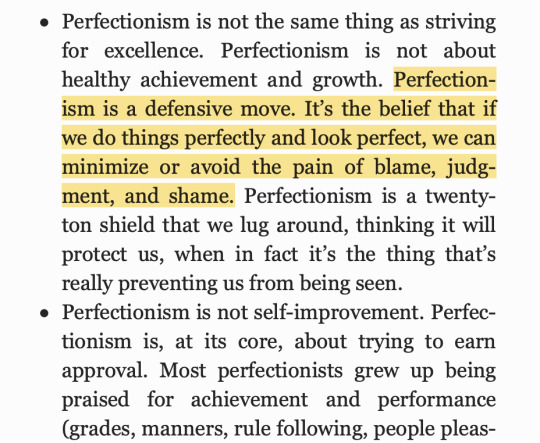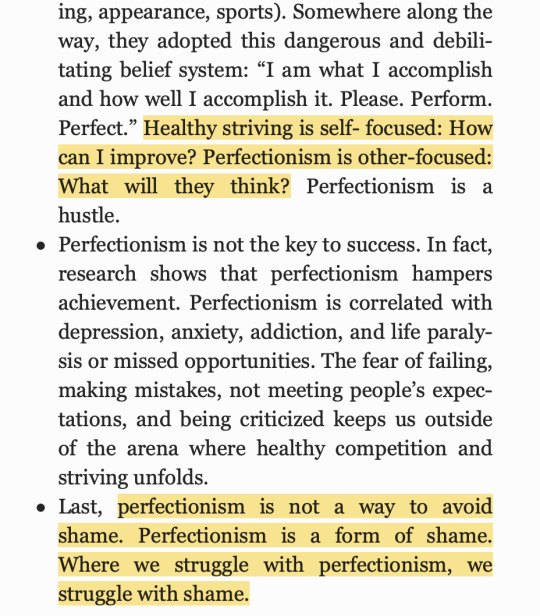Work hard. Play dumb. // IBDP Class of 2017 // Aspiring MD
Don't wanna be here? Send us removal request.
Text
This blog is now closed.
5 notes
·
View notes
Photo

Chongqing brought to you by u/AlphaBetaTest @ r/CityPorn
43 notes
·
View notes
Text
AFRICAN & BLACK PHILOSOPHY: Getting Started
Hello everyone! As many of us who study philosophy in some form are likely aware, people of color, especially black philosophers, are radically underrepresented in the field (composing only 1.32% of all philosophers in the US). In order to combat such marginalization, and in attempt to help amplify black voices within the field of philosophy, I have complied a series of links & information here for learning more about African/black philosophy, especially within the US. Please feel free to add to this post if you feel that anything is missing, esp if ur a black person!
Overview:
According to Wikipedia.org: “African philosophy is the philosophical discourse produced by indigenous Africans and their descendants, including African Americans. African philosophers may be found in the various academic fields of philosophy, such as metaphysics, epistemology, moral philosophy, and political philosophy. One particular subject that many African philosophers have written about is that on the subject of freedom and what it means to be free or to experience wholeness.”
Articles to start with:
“What African Philosophy Can Teach You About the Good Life.”
“A truly African philosophy.”
“African Philosophy.”
“Descartes was wrong: ‘a person is a person through other persons.’”
“Does Western Philosophy Have Egyptian Roots?”
“What You Should Know About Contemporary African Philosophy.”
“Philosophy in Africa - A Case of Epistemic Injustice in the Academy.”
“The African Enlightenment.”
“The Radical Philosophy of Egypt.”
“The first God.”
“African Philosophy Is More Than You Think It Is.”
And some introductory texts:
Barry Hallen, A Short History of African Philosophy. Bloomington and Indianapolis: Indiana University Press (2009).
Samuel Oluoch Himbo, An Introduction to African Philosophy. Lanham et al.: Rowman and Littlefield (1998).
Dismas Masolo, African Philosophy in Search of Identity. Bloomington and Indianapolis: Indiana University Press (1994).
Kwasi Wiredu, A Companion to African Philosophy. Malden, Oxford, Victoria: Blackwell Publishing (2004). (PDF version linked here.)
Key essays:
“The Struggle for Reason in Africa” by Mogobe Ramose in The African Philosophy Reader eds. P.H. Coestzee & A.P.J. Roux
“Appeal,” David Walker
“What to the Slave is the 4th of July?”, Frederick Douglass
“Ain’t I a Woman?”, Sojourner Truth
“The Black Woman’s role in the Community of Slaves,” Angela Davis
The Souls of Black Folk by W.E.B. DuBois (first chapter esp.)
“A Problem of Biography in African Thought” & “What Does It Mean to Be a Problem?” by Lewis Gordon in Existentia Africana
“Racism and Feminism,” by bell hooks in the PDF linked here
“Recognizing Racism in the Era of Neoliberalism,” Angela Davis
“Nonviolence and Racial Justice,” Martin Luther King, Jr.
“The Ballot or the Bullet,” Malcolm X
“The Uses of Anger: Women Responding to Racism,” Audre Lorde
“Whiteness as Property,” Cheryl Harris
Important contemporary black philosophers:
Cornel West (political philosophy, philosophy of religion, ethics, race, democracy, liberation theology)
Angela Davis (also a writer and social activist & just a general badass, really worth knowing about regardless of whether or not you have an interest in philosophy)
bell hooks (race, capitalism, sexuality & gender through a postmodern perspective)
Lewis Gordon (Africana philosophy, black existentialism, phenomenology)
Kwame Anthony Appiah (probabilistic semantics, political theory, moral theory, intellectual history, race and identity theory)
Patricia Hill Collins (sociology of knowledge, race, class, gender studies)
John H. McWhorter (linguistics)
George Yancy (Critical philosophy of race, critical whiteness studies, African philosophy, philosophy of the body)
Kwassi Wiredu (African philosophy)
Franz Fanon (20th century Marxism, psychoanalysis, colonialism)
Online podcasts, blogs, & videos:
Podcast on Africana philosophy (the website linked here also contains several useful links and resources for further reading)
Youtube series on African Philosophy
Award-winning blog run by a Nigerian-Finnish woman which “connects feminism with critical reflections on contemporary culture from an Africa-centred perspective.”
Other links & resources:
Journal on African Philosophy
Wikipedia page, which includes a list of African philosophers
History of African Philosophy
Online bibliography on African Philosophy
25 Black Scholars You Should Know
The Collegium of Black Women Philosophers
8K notes
·
View notes
Quote
Tact, like empathy, is based on a certain form of mutual understanding. But while empathy implies the idea of entering someone else’s mind inasmuch as it is linked to the presumption that ‘I know how you feel’, tact exists to create a form of bonding between individuals that is not based on the idea of intrusion but, conversely, on the respect for existing boundaries, and on a willingness not always to assume that one knows. While empathy requires resonance and proximity, tact is there to restore distance, and to accept the difference between the individuals involved in order to protect and preserve their dignity. Tact is based on an attention towards otherness.
Katja Haustein, “How to Be Alone with Others: Plessner, Adorno, and Barthes on Tact” (via mehreenkasana)
5K notes
·
View notes
Photo
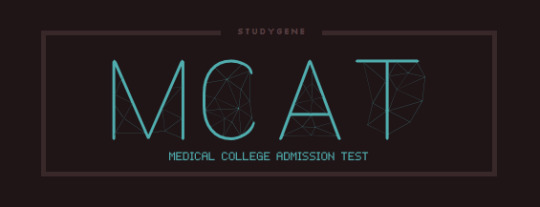
The MCAT is the admissions test for those applying to medical school in America and Canada (less emphasis). It is a 7.5 hour test composed of 4 sections. This masterpost is a compilation of MCAT resources I have found and pulled together to help those preparing for their MCAT exam.
Disclaimer: I do not endorse one test prep company over another; I also do not guarantee that this is a conclusive resource list; there are several other resources out there as well that may or may not have been mentioned in this guide.
Here’s a quick break down of the exam (table provided by Princeton Review):
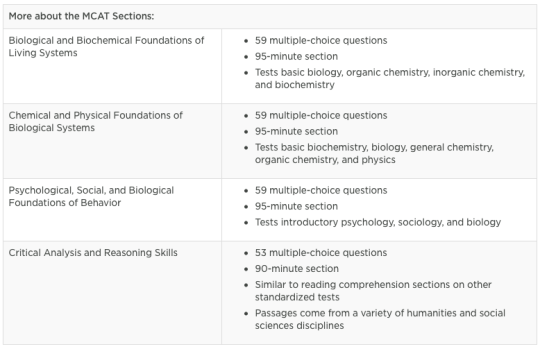
General Tips
Take practice exams! Practice tests are not always a huge indicator to how well you will do on the actual exam but rather a way to familiarize yourself with the exam. Take practice exams like it’s test day. Whatever you do, don’t retake a practice exam.
Have a study schedule that you will stick to like super Gorilla glue.
Plan on spending about 3-6 months/ one semester to prepare for the MCAT. If you are planning to study for the MCAT while in classes, take a light-weight course load that semester.
Register early for the MCAT. It’s harder to get spots later on.
Make condensed one-page outlines of what you learn for each chapter.
Practice timing yourself and take your breaks. This is a 7.5 hour exam, you need the stamina and you need the breaks before your brain goes haywire. The test does not have a designated “alarm”.
Flashcards! *Pile all your flashcards together and shuffle frequently; all information that you learn is connected together.
Make your own mnemonics.
Think quick; think smart. The MCAT is meant to test you on how well you can think like a doctor.
The best (and most popular) time to take the MCAT is in late May to early July of your third year.
Do not cram.
Do not study one subject at a time.
Don’t leave a question unanswered.
General Resources
bolded are my favorite resources
AAMC: your go-to website for MCAT stuff because they write the test
KhanAcademy MCAT: AAMC and KhanAcademy have partnered up to help students with free resources to tackle the MCAT
Princeton Review MCAT study guide
Princeton Review Free Online Practice MCAT
Kaplan: What changed on the test
Kaplan Free Online Practice MCAT
109 Tips & Strategies for the MCAT
ExamCrackers MCAT
StudyGuideZone’s MCAT study guide
Free MCAT study materials
Berkley Review books for MCAT
Kaplan’s MCAT quick sheets
Reddit’s MCAT content review: scroll down and take a look at the “what are the study materials out there” and the “free study materials” sections
Other References
simplewanderings‘s MCAT tag
ephie-ubc-science’s experience with the 2015 MCAT
studycyclops’s 12 week mcat study schedule
premedtomd’s MCAT study schedule
How to Prepare for the MCAT
Reddit MCAT forum
2K notes
·
View notes
Text
Ya'll might wanna grow some hyperaccumulators (such as sunflowers, oyster mushrooms, mustard greens, vetiver, etc) around your house and/or in your garden for a few years before you plant leafy vegetables so you don't end up consuming heavy metals.
48K notes
·
View notes
Photo

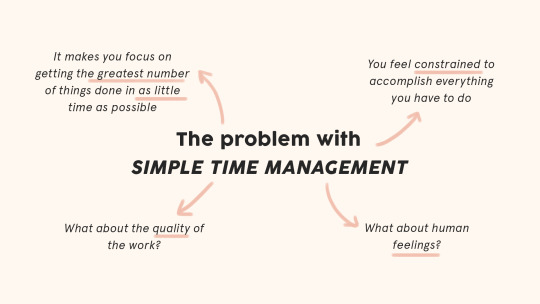
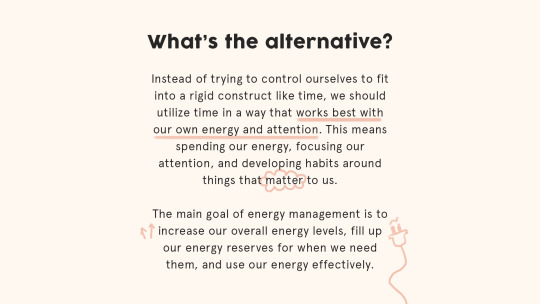
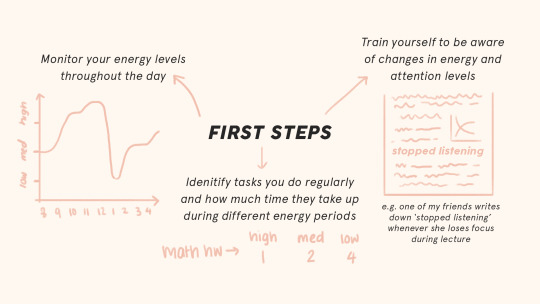

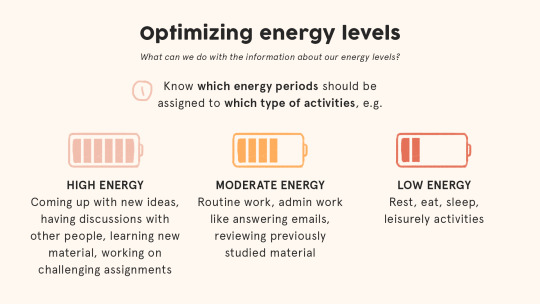
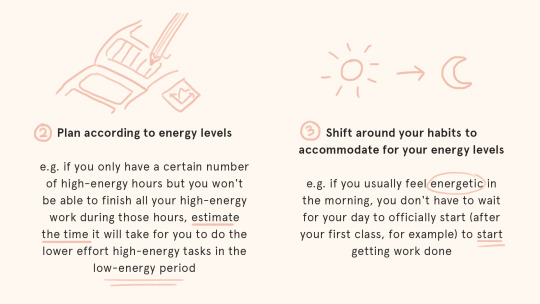
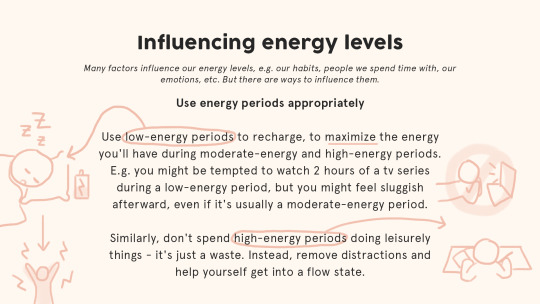
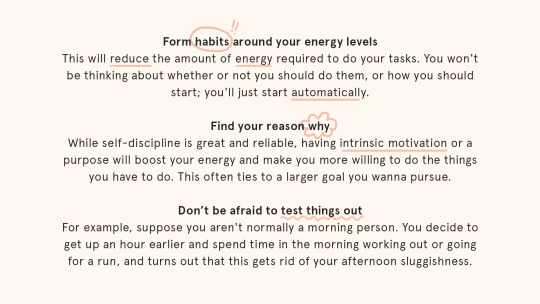
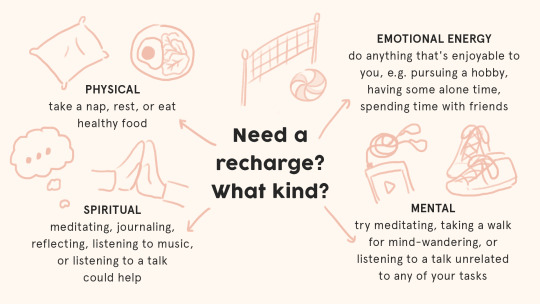
Energy Management
A human-based organization method
click on images for better resolution; images also available here (link to google drive)
Other posts that may be of interest:
Getting stuff done: How to deal with a lack of motivation
Flexible time-blocking: A more breathable way to get things done
The ABCDE Method
30K notes
·
View notes
Text
being an eldest daughter is just [writes a poem about private and intimate moments in your mother's life because she's inadvertently passed those moments down to you and you can't put them down] [writes a poem about your father's anger and your own simultaneous sympathy for and anger at him] [writes a poem about loving your siblings and cracking under the weight of it] [writes a poem about being unable to run away]
6K notes
·
View notes
Text
“I remembered once, in Japan, having been to see the Gold Pavilion Temple in Kyoto and being mildly surprised at quite how well it had weathered the passage of time since it was first built in the fourteenth century. I was told it hadn’t weathered well at all, and had in fact been burnt to the ground twice in this century. “So it isn’t the original building?” I had asked my Japanese guide. “But yes, of course it is,” he insisted, rather surprised at my question. “But it’s been burnt down?” “Yes.” “Twice?” “Many times.” “And rebuilt.” “Of course. It is an important and historic building.” “With completely new materials.” “But of course. It was burnt down.” “So how can it be the same building?” “It is always the same building.” I had to admit to myself that this was in fact a perfectly rational point of view, it merely started from an unexpected premise. The idea of the building, the intention of it, its design, are all immutable and are the essence of the building. The intention of the original builders is what survived. The wood of which the design is constructed decays and is replaced when necessary. To be overly concerned with the original materials, which are merely sentimental souvenirs of the past, is to fail to see the living building itself.”
— Douglas Adams (via valarhalla)
81K notes
·
View notes
Photo

Ferdinando Scianna (Sicilian-Italian, b. 1943, Bagheria, Sicily, Italy) - France, 1982, Photography
567 notes
·
View notes
